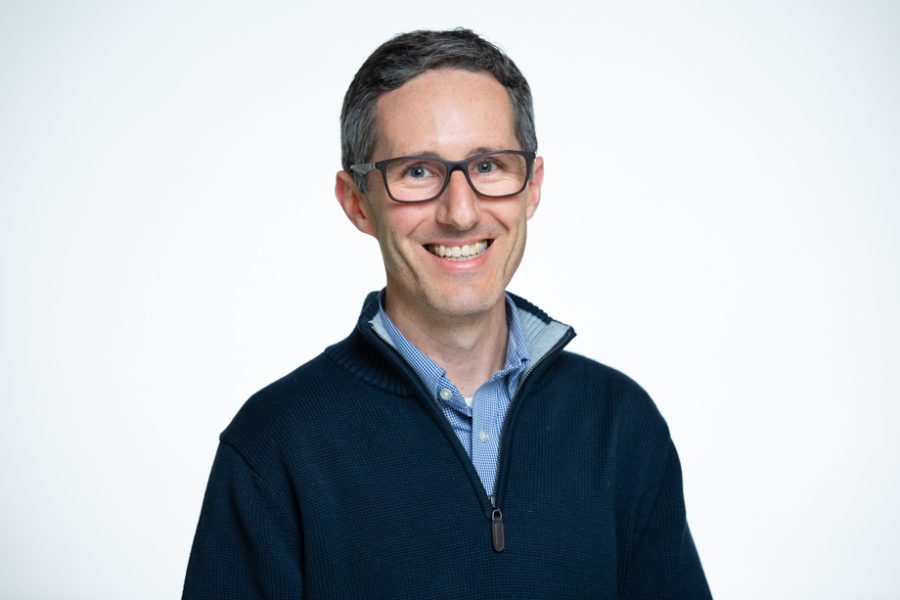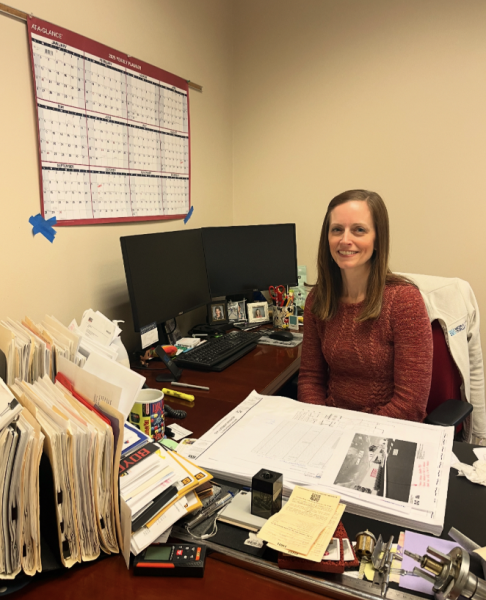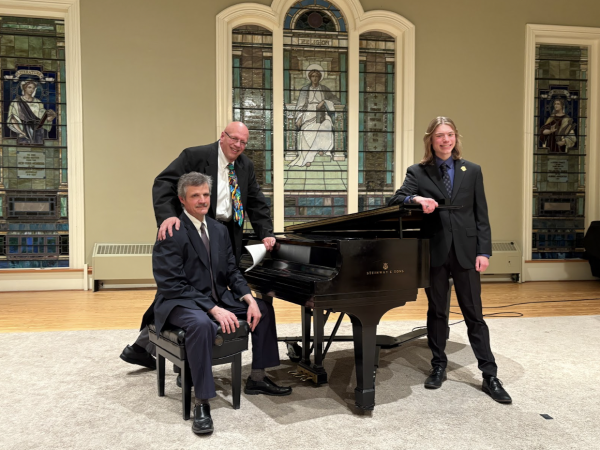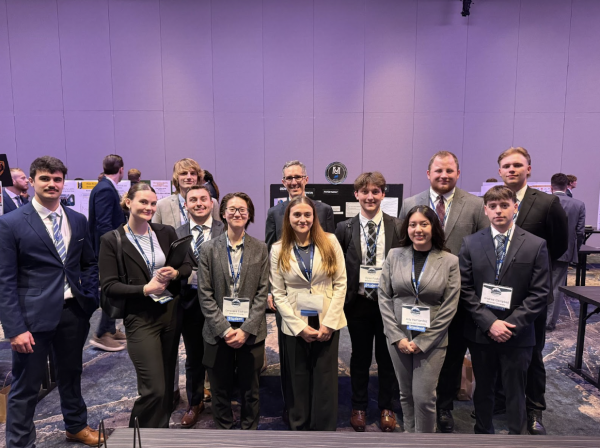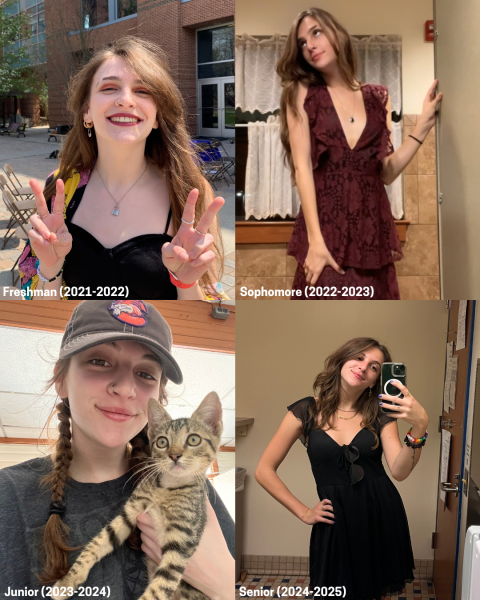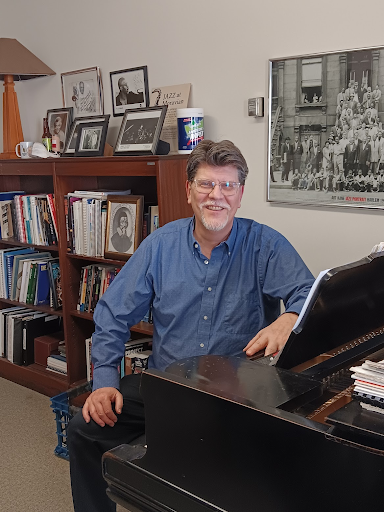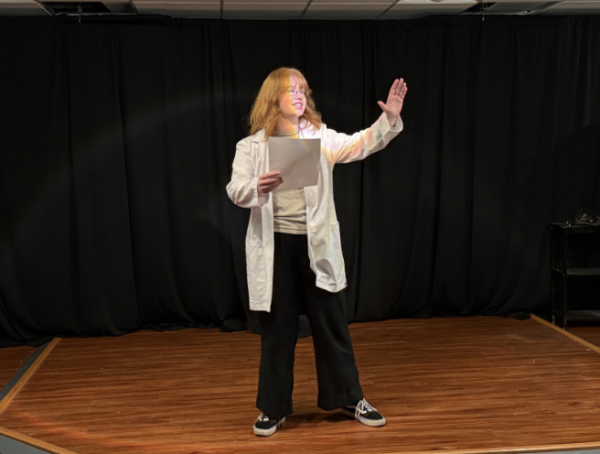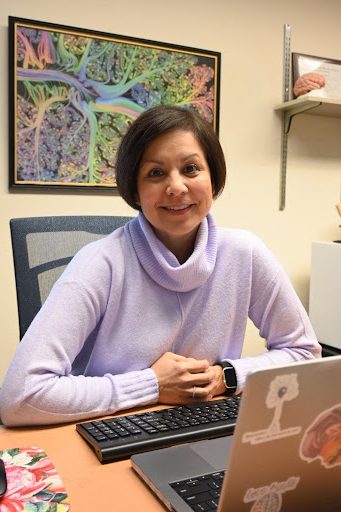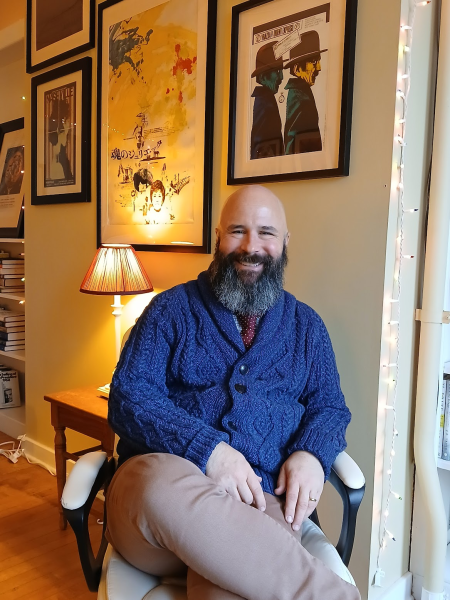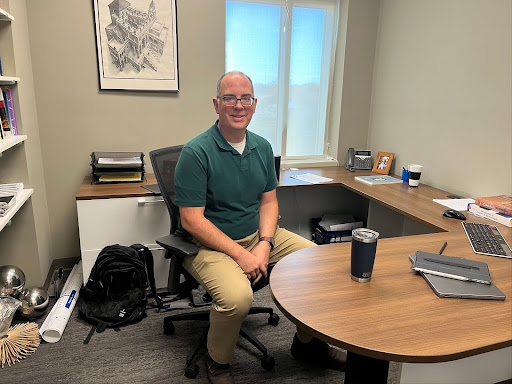Professor Spotlight: Daniel O’Connor
Daniel O’Connor is an assistant professor of practice in accounting at Moravian University. He obtained his B.A. from DeSales University, where he majored in accounting and minored in philosophy and theology. O’Connor obtained his M.B.A with a concentration in accounting from DeSales University, and is currently working towards a Ph.D. from Alvernia University in business leadership, which he expects to complete in the spring/summer of 2022.
What inspired you to go into your field of study?
It was a high school class, where we created a business that sold sweatshirts, and then ran through the various functions of the business. Some students worked on the design of the sweatshirts, some worked in sales, or in marketing. I worked in the accounting side and I really enjoyed it. I learned the way businesses were organized and operated and how a company’s performance is communicated through accounting.
What research are you currently working on?
For my dissertation, I’m trying to identify how salient the environment is as a stakeholder to the 100 largest banks in our country. How often do they talk about, disclose, spend money, and basically, do they consider the environment when they’re making decisions for their organizations. I am also trying to tie that into leadership styles of CEOs for those banking institutions, and to see if there’s any possible relationship between a particular CEO style and how important the environment is to their organizations.
What do you think is the most recent important development in your field of study?
There’s SASB, Sustainability Accounting Standards Boards. That combines my two fields – corporate social responsibility and accounting. SASB is working to establish what companies should disclose in their financial statements regarding non-financial transactions. These involve the impact these companies have on the environment – What does their supply chain look like? Who are they lending their money to? Are they lending to companies and industries that are notorious polluters? Are they charging them more interest because there’s more risk involved with that? Ultimately, are companies considering the environment in their decision-making?
What job would you have if you couldn’t be a professor, regardless of salary and job outcome? Why?
Work for a think tank, where I get to engage with others working to help make positive change in our world. Or maybe a coach for cross-country and track & field.
What do you know now that you wished you knew when you were in college?
I would have wanted to know that the subjects or situations that were difficult to me, probably weren’t as difficult as I thought they were. That is, with help I would have been able to be a better student and person. I wish I would have been more brave, to reach out for help when I needed it.
What is your biggest student pet peeve?
Students are great with social media, but sometimes fail to realize the powerful resource that the internet is for researching problems/questions. For example, if you’re wondering how to account for a transaction, it’s fine that you don’t know it, but go look up the accounting policies and rules. You have to do a bit of legwork on your own before giving up.
Another area for me is when I see students not being brave or confident enough in themselves. Our students are just as capable, just as intelligent, just as creative, and just as competent as other students. I see a lot of students who either don’t do something, give-up, or don’t participate in class or an activity because they might lack the courage or support to succeed.
What should students expect from your classes? What is the secret to succeeding in your classes?
To be successful in my classes, students should be present and active in class, work the homework problems and projects, and to ask questions, and reach-out for help when needed. Participating during class helps out a lot; it allows you to communicate, and explain things, which is another way of learning.
What was the last streaming show that you binge-watched or the last good book that you read?
I’m part of a book club with two of my cohort members. . We usually select books that focus on leadership. We recently read Margaret Wheatley’s “Who Do We Choose To Be?” Wheatley questions why we continue to see failed leadership when more and more executives and government officials engage in leadership training. Her answer is to focus on local matters – improve the area you are in, whether it’s family, a class, or a neighborhood. If you focus on those, you’ll have a better chance at making change than trying to solve global issues. Her phrase is “build an island of sanity around all the insanity that’s happening in the world.”
For shows, my wife and I have watched the Marvel series, like “Hawkeye” and “WandaVision.” Sometimes I’ll watch “The West Wing” and just let it run show after show as it keeps me awake. I’ve seen it so many times, so I mostly keep it on for background noise rather than actually watch it.
What is something interesting about you that most people don’t know?
Right out of college I was a Catholic seminarian for less than a year. It was a short stint, but it was always something in my head. I don’t know why, and I knew I probably wouldn’t end up there, but it’s something I decided to try. I knew pretty early on that it wasn’t the life I felt called to.
What is one (or multiple) piece(s) of advice you’d give to prospective accounting students?
In addition to the core accounting and business concepts and practices, I recommend engaging in data analytics and communications.. As the more operational parts of accounting are automated, current and future accountants will create value through understanding accounting data, and then solving problems using that knowledge. I would also say take other classes, not just accounting, business, finance, and economics. Go learn about philosophy, English, Physics, etc., and become a well-rounded individual. While accounting is about understanding business performance and being able to communicate that performance, it’s also about being able to relate to other people and building relationships, like any job is. I know you’ll be a better accountant and person by learning about many subjects. .
Is there anything else you’d like to share?
Be brave, be graceful and grateful to others, make mistakes; we all make mistakes in life, it’s just a matter of learning from them.


